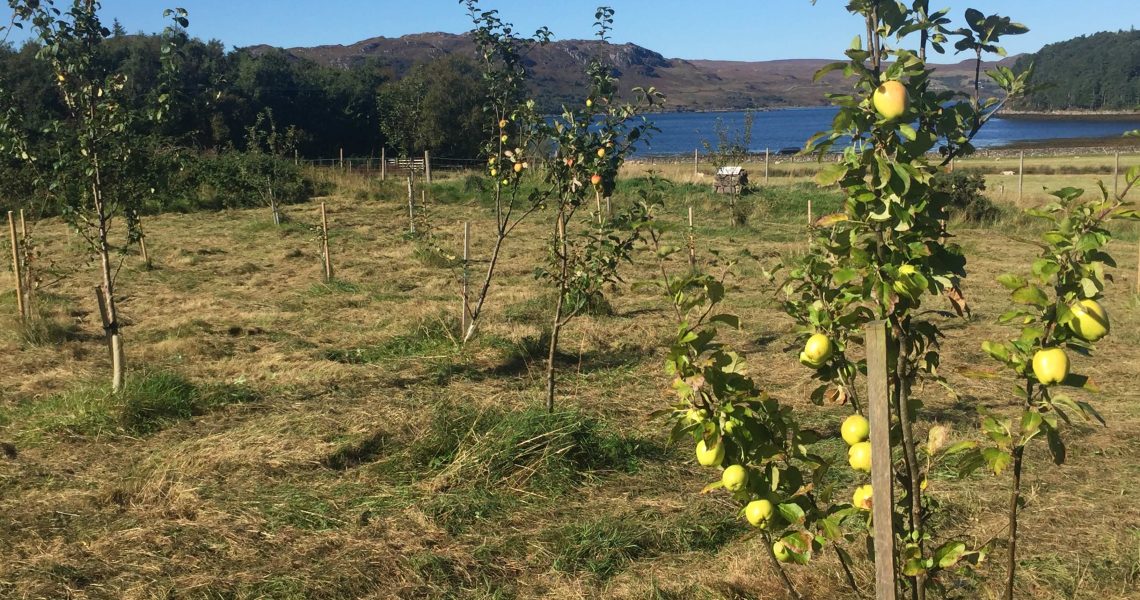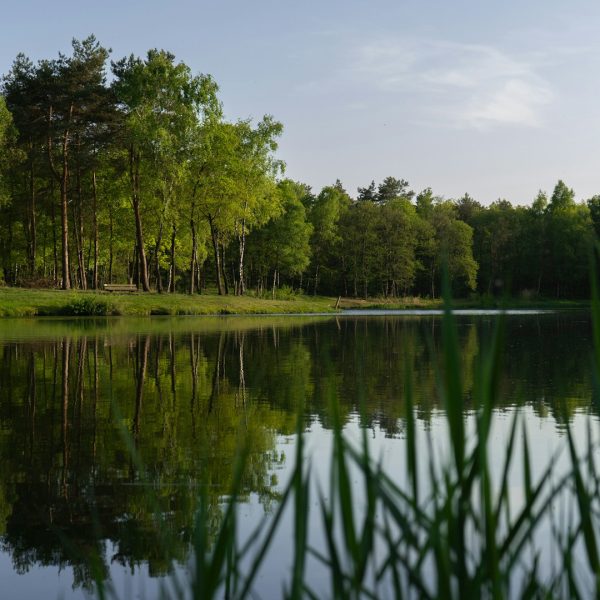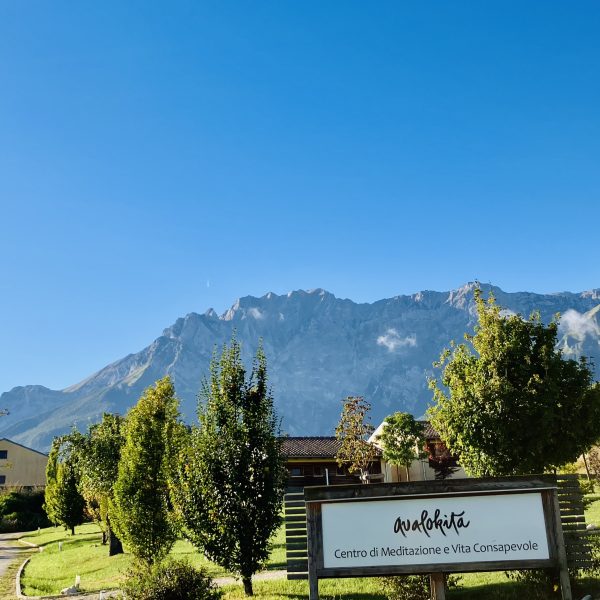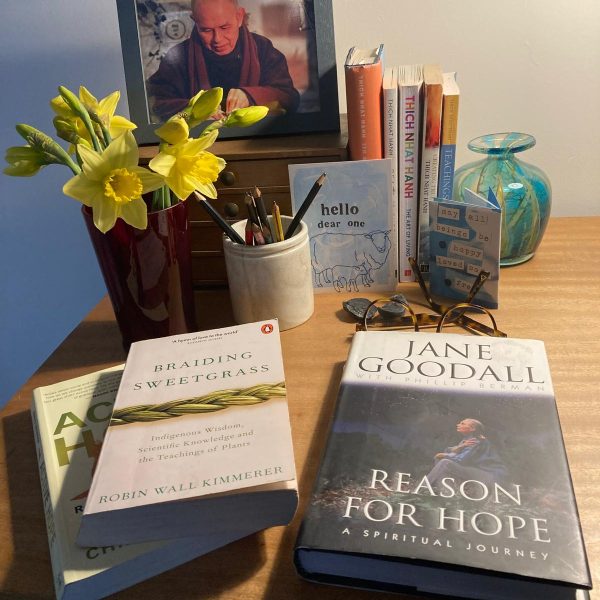The Pocket Orchards project

The Pocket Orchards project started soon after I moved to the north west coast of Scotland in 2016, full of enthusiasm and love for the area with its cultural and natural heritage. I saw a couple of neglected apple trees in an overgrown area near Poolewe war memorial and decided to create some mini community spaces of just a few trees here and there. Settlement here is dispersed and many people have no access to public transport. As far as possible I wanted as many local people as possible to be able to benefit by having a pocket orchard within walking or cycling distance, or at locations such as schools and village halls.
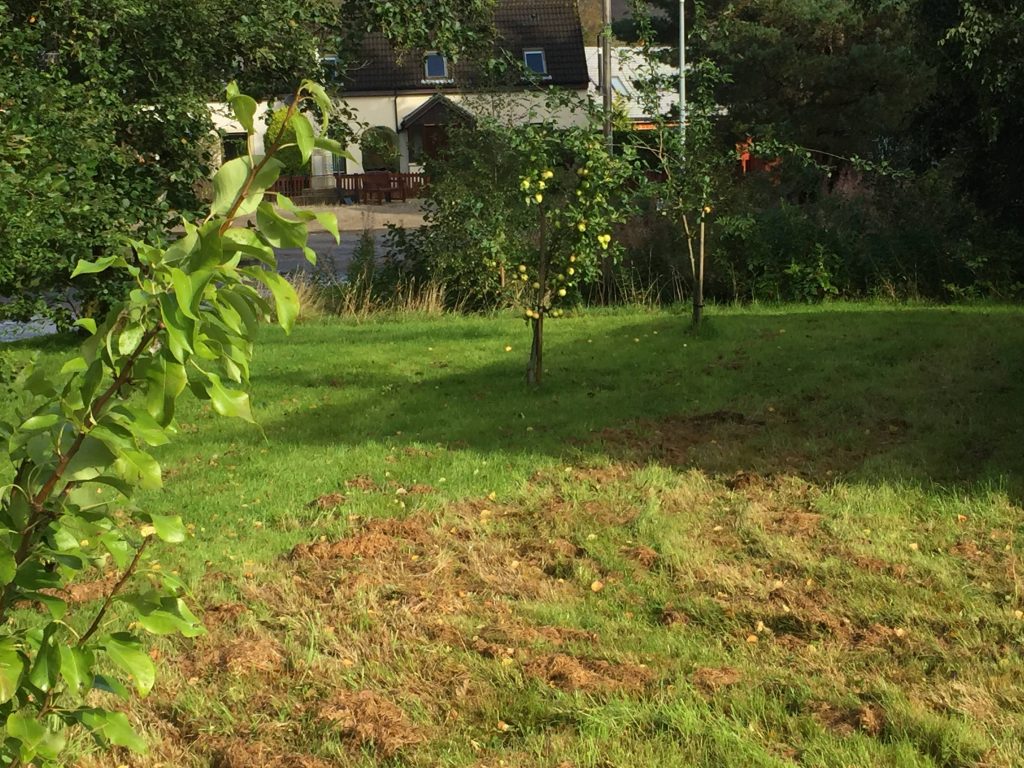
I have encountered some negativity, even hostility. I think it’s because the idea is counter-cultural and challenges modern economic and political thinking, based on creating demand for products and services. This is why the insights of our tradition are so important. Interbeing surely means Buddha nature exists in all living beings. The pocket orchards are an attempt to respect and work with nature, knowing that when we do that, nature will work with us.
A small group of us just went out, bought a few apple trees from a Scottish supplier, and started. We formed ourselves into an unincorporated association and a bank account was set up to receive funds. Then it just developed. However, the pocket orchards are not ‘guerilla’ planting. Sites were either recommended by others or chosen after checking with community councils, the local authority and others.
The first apple tree was planted at the end of my house in Poolewe in 2017. It is a Katy, a Swedish variety well suited to growing this far north. It has done well, despite the red deer, which are extraordinarily destructive.
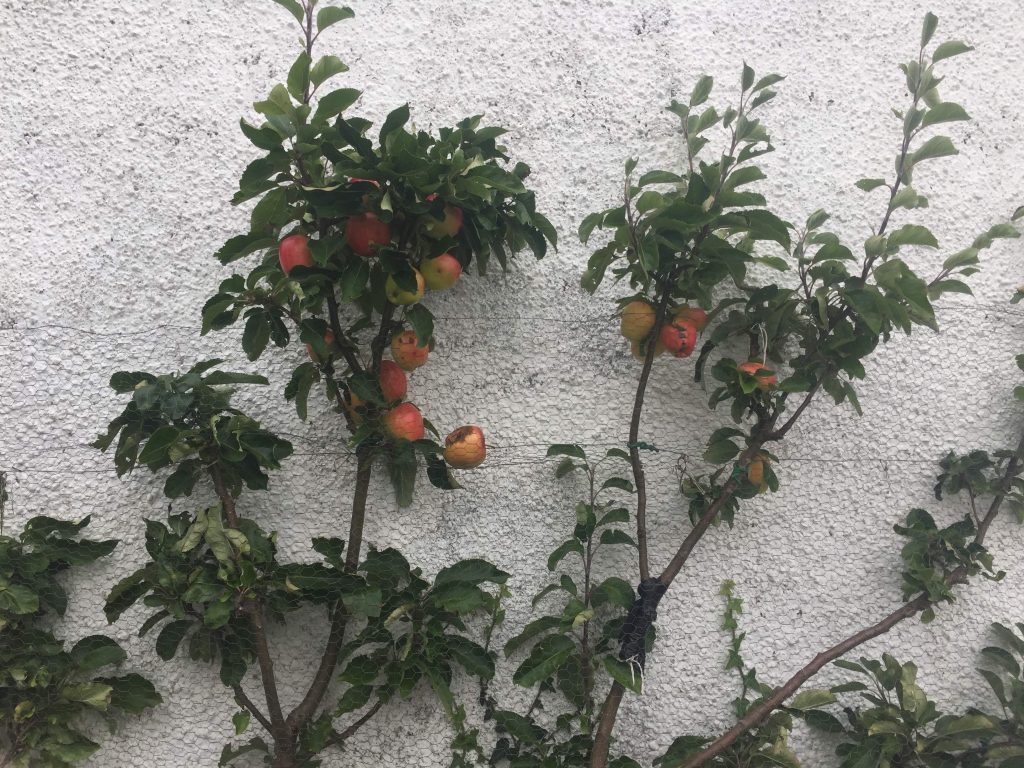
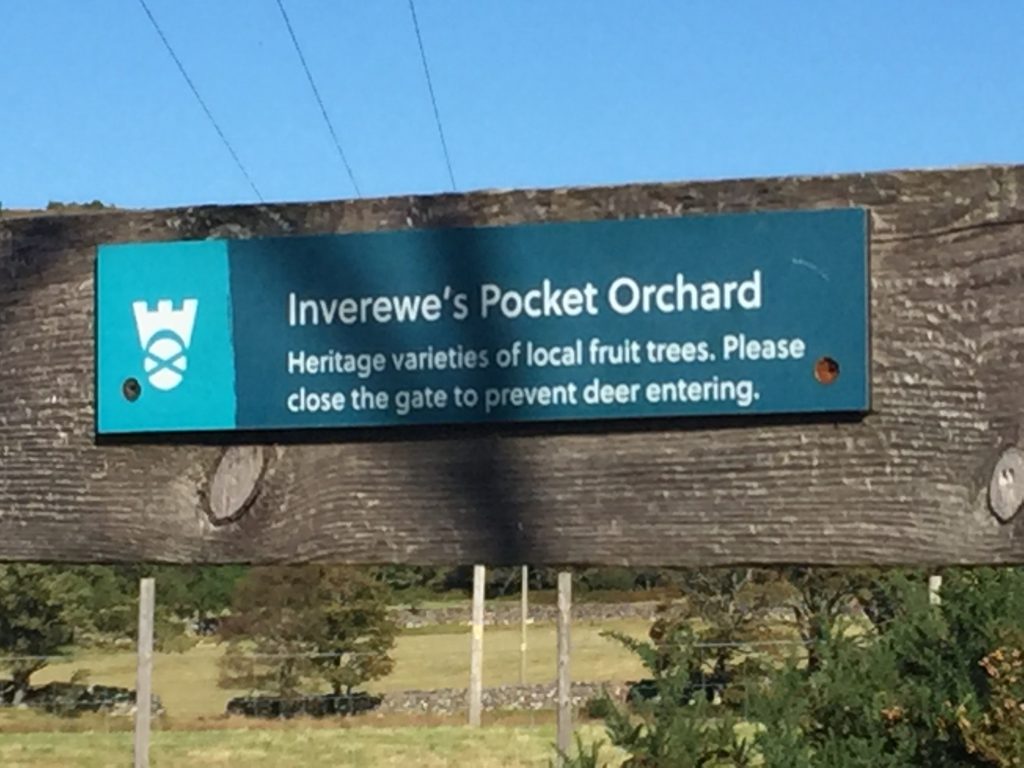
Almost all the schools from Ullapool in the north to Plockton were very happy to have some trees. Most of these were packs of eight purchased from Jon Hancox in Glasgow: 4 apples, 2 pears, 2 plums. Jon advised on varieties likely to do best in this wet, windy climate. Where possible I planted with the children and they were all wonderful, very keen to plant in sometimes really horrible weather. Altogether about 250 fruit trees have been planted, mostly apples, with lesser numbers of plums, pears and cherries, as well as two chestnut trees on Poolewe village green, hazels and other native trees.
The most successful pocket orchard is on the National Trust for Scotland’s Inverewe estate, which started with a few trees in 2017. Following deer damage, the NTS deer fenced the area and it has since thrived. The older trees are now established and producing fruit, and in the early spring of 2024 a further 12 trees were added with the help of NTS volunteers. There are now 23 trees in this orchard, and a row of sessile oaks has been planted along the NW side to provide future wind protection.
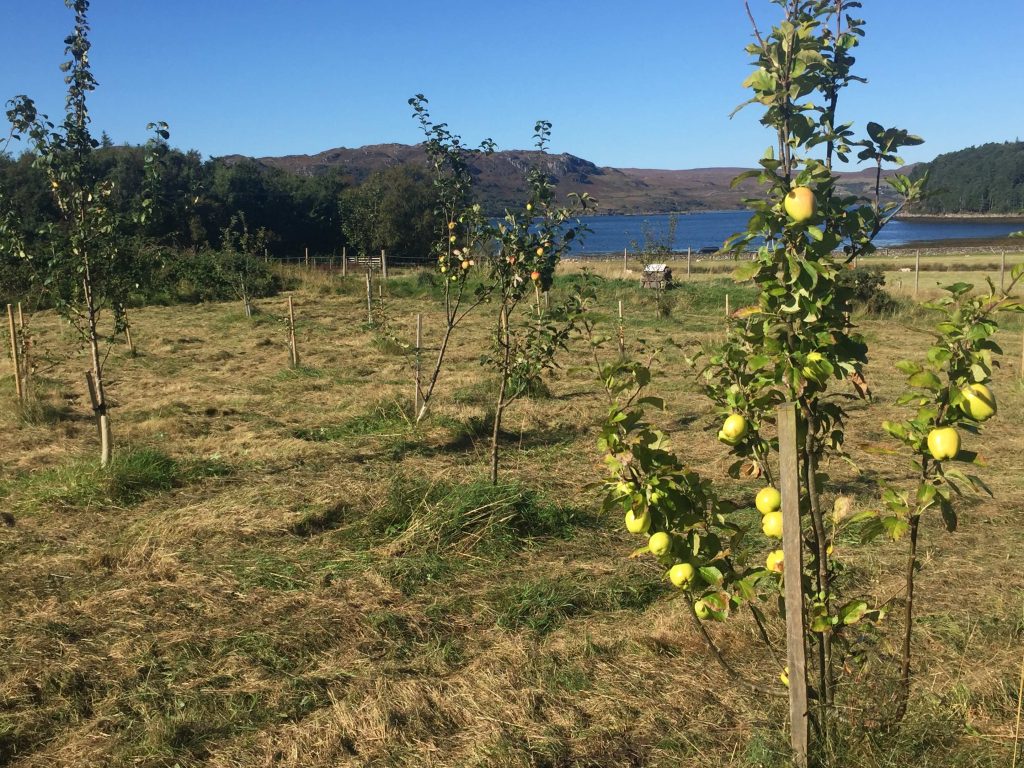
The trees do need aftercare, deer protection and ongoing maintenance is needed, and this has proved to be more than I can manage single handed. I now plan to focus on a small number of locations and just try to make sure that these survive and thrive. The trees are starting to produce fruit, people are talking about holding apple days and pressing juice. We have fortnightly ‘ceilidh house’ sessions at Gairloch museum, one evening recently someone brought an apple cake made from Inverewe pocket orchard apples. I was delighted!
Meanwhile local bees, other insects and birds are enjoying the trees, the leaves fall in the autumn and enrich our poor soils. The pocket orchards are really about working with nature, with other living beings, to build abundance.
text and photos by John Wood

